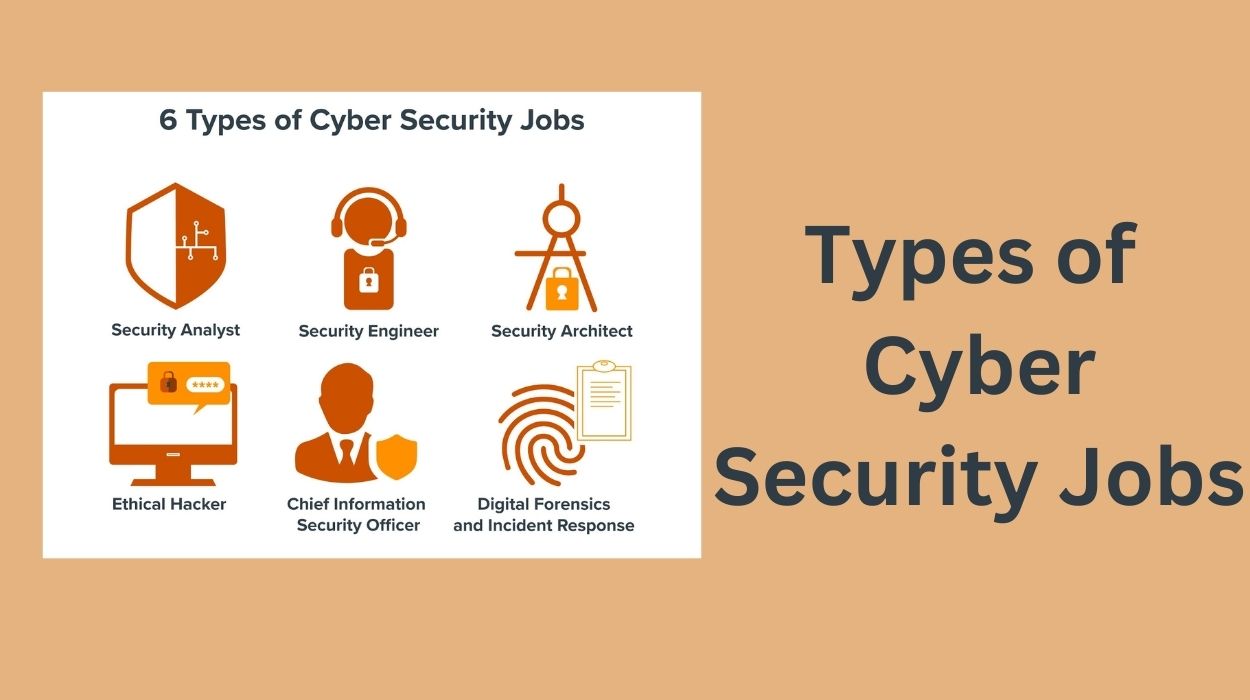Introduction Is Cyber Security Jobs Remote
In today’s digital age, the way we work is changing quickly, leading to more remote opportunities. Cyber security is one field that has fully embraced this shift. Many people now ask: Are cyber security jobs remote? Let’s look at how remote work is growing in cyber security and how it’s changing the industry.
Welcome to the Future: The Rise of Remote Work
With improvements in generation and connectivity, the traditional workplace setup is giving way to remote painting alternatives.
The cyber protection area, recognized for its essential function in safeguarding facts and structures, is adapting to this new paradigm.
Defining Cyber Security Jobs
Is Cyber Security Jobs Remote encompass a range of roles dedicated to protecting digital assets from cyber threats?
These roles include security analysts, engineers, threat intelligence specialists, and more.
The Shift to Remote Cyber Security Positions
Organizations are recognizing the benefits of remote work, even in the Is Cyber Security Jobs Remote realm.
As a result, Cyber Security Jobs Remote professionals are increasingly finding opportunities to work remotely, answering the question, Is cyber security jobs remote

Advantages of Is Cyber Security Jobs Remote
In exploring the question, of is cyber security jobs are remote it’s essential to understand the advantages that come with these positions.
Flexibility: Work from Anywhere
Remote cyber security jobs provide the flexibility to work from anywhere with an internet connection.
Whether it’s from the comfort of home, a co-working space, or maybe while traveling, professionals can perform their responsibilities without being tied to a selected place.
Improved Work-Life Balance
Working remotely allows cyber security professionals to better balance their personal and professional lives.
They can structure their day to accommodate personal commitments, leading to increased job satisfaction and overall well-being.
Reduced Commuting Stress
Is Cyber Security Jobs Remote eliminate the daily commute to and from the office.
This reduction in commuting time not only saves on transportation costs but also reduces stress levels and contributes to a healthier lifestyle.
Access to Global Opportunities
By embracing remote work, cyber security professionals can access job opportunities from around the world.
They are not limited by geographical boundaries, opening doors to diverse projects and collaborations.
Types of Cyber Security Jobs, Remote Roles
When considering the question, of is cyber security jobs are remote it’s crucial to understand the various roles that offer remote work options.

Remote Security Analysts
Security analysts play a pivotal role in monitoring and analyzing security threats.
Working remotely, they can assess potential risks and respond to incidents from anywhere, ensuring continuous protection for organizations.
Virtual Security Engineers
Virtual security engineers design, implement, and maintain security solutions for organizations.
With remote access to systems and tools, they can address security challenges and fortify defenses remotely.
Telecommuting Cyber Threat Intelligence Specialists
Is Cyber Security Jobs Remote chance intelligence professionals accumulate and examine statistics to identify capacity threats and vulnerabilities.
Working remotely, they can provide precious insights and guidelines to mitigate risks, all whilst staying related to global threat landscapes.
As the arena continues to embody remote work, the cyber safety industry is at the vanguard of this shift. Professionals in Are Cyber Security Jobs Remote are locating elevated possibilities to paintings remotely, offering advantages such as flexibility, advanced work-life stability, reduced commuting pressure, and admission to international opportunities.
Qualifications and Skills Required
To excel in cyber security jobs remote, professionals need a blend of technical proficiency, certifications, and soft skills.
Technical Proficiency
Programming Languages: Familiarity with languages such as Python, C/C++, and Java is crucial for analyzing and developing security solutions.
Networks and Systems: Understanding network protocols, firewalls, and operating systems (e.g., Linux, and Windows) is essential for securing infrastructure.
Certifications
CISSP (Certified Information Systems Security Professional): Recognized globally, CISSP validates expertise in designing, implementing, and managing security programs.
CEH (Certified Ethical Hacker): This certification focuses on offensive security techniques, enabling professionals to think like hackers to prevent attacks.
CompTIA Security+: A foundational certification covering network security, compliance, and operational security principles.
Soft Skills
Communication: Effectively conveying complex security concepts to non-technical stakeholders.
Problem-Solving: Analyzing security incidents and devising solutions promptly.
Attention to Detail: Thoroughly assessing vulnerabilities and implementing precise security measures.
How to Find Remote Cyber Security Jobs
For those seeking cyber security jobs, various avenues exist to discover opportunities in the field.
Online Job Boards
Indeed: A comprehensive platform with listings from various industries, including cyber security roles.
LinkedIn: Utilize its job search feature and filter for remote positions, connecting directly with recruiters.
Remote. co: Specializing in remote work opportunities, this site frequently features cyber security jobs.
Company Websites
Tech Giants and Startups: Companies like Google, Facebook, and emerging startups often advertise remote cyber security roles on their official career pages.
Networking
LinkedIn Groups: Join cybersecurity-focused groups to network with professionals and stay updated on remote job postings.
Cyber Security Conferences: Attend virtual or in-person conferences to connect with industry leaders and potential employers.
Companies Hiring for Remote Cyber Security Positions
The answer to is cyber security jobs remote is a resounding yes, with major companies actively hiring for remote roles.
Google: Remote Security Engineer
Role Description: Google seeks remote security engineers to design and implement security solutions for its diverse range of products and services.
Responsibilities: Conducting security assessments, developing threat models, and collaborating with cross-functional teams.
Qualifications: Strong background in security engineering, experience with cloud platforms (e.g., Google Cloud Platform), and CISSP certification.
Facebook: Virtual Cyber Security Analyst
IBM: Telecommuting Threat Researcher
Role Description: IBM is hiring telecommuting threat researchers to analyze emerging threats and develop proactive security measures.
Responsibilities: Conducting threat assessments, researching vulnerabilities, and collaborating with global security teams.
Qualifications: Expertise in threat intelligence analysis, familiarity with malware analysis tools, and CompTIA Security+ certification.
Tips for Landing a Remote Cyber Security Job
Securing a position in Is Cyber Security Jobs Remote requires strategic approaches to stand out in the application process.
Tailoring Your Resume for Remote Positions
Highlight Remote Work Skills: Emphasize skills such as self-motivation, time management, and remote collaboration.
Detail Remote Experience: If you’ve worked remotely before, showcase achievements and responsibilities related to independent work and project management.
Include Relevant Certifications: List certifications relevant to remote cyber security roles, such as remote security monitoring or virtual network security.

Showcasing Remote Work Experience
Case Studies or Projects: Detail projects or initiatives where you successfully managed remote teams or implemented remote security solutions.
Communication Skills: Highlight instances where you effectively communicated with remote colleagues or clients, emphasizing your ability to collaborate across distances.
Results-Oriented Approach: Demonstrate how your remote work contributed to positive outcomes for previous employers, such as improved security measures or reduced vulnerabilities.
Nailing the Virtual Interview
Technical Preparedness: Ensure your video conferencing setup is reliable, with a stable internet connection and clear audio/video.
Professionalism: Dress professionally, maintain eye contact, and minimize distractions during the interview.
Highlight Remote Skills: When discussing your experience, focus on how your remote work skills align with the requirements of the cyber security role.
Challenges of Remote Cyber Security Work
While cyber security jobs offer numerous benefits, professionals must navigate certain challenges inherent in remote work.
Communication and Collaboration
Lack of Face-to-Face Interaction: Building rapport and conveying complex ideas can be challenging without in-person meetings.
Utilizing Virtual Tools: Effectively using communication tools like Slack, Microsoft Teams, or Zoom is crucial for remote collaboration.
Cyber Security Risks: Securing Remote Networks
Home Network Security: Ensuring the security of personal networks and devices used for remote work is essential.
VPN Usage: Utilizing Virtual Private Networks (VPNs) to encrypt data transmission and secure remote connections.
Balancing Work and Personal Life
Boundary Setting: Establishing clear work hours and boundaries to prevent burnout and maintain work-life balance.
Remote Isolation: Addressing feelings of isolation by actively engaging in virtual team activities and maintaining communication with colleagues.
Industry Trends in Remote Cyber Security
Do cyber security jobs remotely reflect broader industry trends shaping the future of cyber security work?
Remote Security Operations Centers (SOCs)
Centralized Monitoring: SOCs are transitioning to remote models, allowing security analysts to monitor networks and respond to threats from anywhere.
Cloud-Based Tools: Leveraging cloud-based security tools for remote monitoring and incident response.
Outsourcing Cyber Security Services
Remote Managed Security Services: Organizations are increasingly outsourcing security functions to remote service providers.
Cost Efficiency: Outsourcing can offer cost-effective solutions, especially for smaller organizations without in-house cyber security teams.
Growth of Remote Security Tools
Endpoint Security Solutions: With the rise of remote work, there’s a surge in demand for endpoint security tools that protect devices outside traditional networks.
Secure Access Solutions: Implementing secure remote access solutions such as multi-factor authentication (MFA) and virtual private networks (VPNs).
Frequently Asked Questions (FAQs)
What are the common remote cyber security job titles?
Common remote cyber security job titles include:
-
- Remote Security Analyst
- Virtual Security Engineer
- Telecommuting Threat Researcher
- Remote Cyber Security Consultant
- Virtual Security Operations Center (SOC) Analyst
- Telework Information Security Specialist
Can I transition from an office-based role to remote cyber security?
Yes, transitioning from an office-based cyber security role to a remote position is possible.
Emphasize your remote work skills, adaptability, and ability to work independently in your resume and interviews.
Highlight any experience with remote tools and technologies related to cyber security.
Are remote cyber security jobs well-paid compared to on-site positions?
Remote cyber security jobs can offer competitive salaries, often on par with or even higher than on-site positions.
Salaries depend on factors such as experience, certifications, location, and the specific employer.
Remote work may also come with cost savings (commuting, office attire, etc.), enhancing overall compensation.
How do I stay updated with remote cybersecurity trends?
Stay Connected: Follow industry-leading blogs, websites, and social media accounts dedicated to cyber security.
Attend Virtual Conferences: Participate in online cyber security conferences and webinars to learn about the latest trends and technologies.
Professional Development: Pursue relevant certifications and training courses, as they often cover the latest advancements in remote cyber security.
What challenges do remote cyber security professionals face?
Communication: Ensuring effective communication and collaboration with team members and clients can be challenging without face-to-face interaction.
Network Security: Securing personal home networks and devices used for remote work against cyber threats.
Work-Life Balance: Establishing boundaries between work and personal life, especially when working from home.
Isolation: Addressing feelings of isolation by actively engaging with virtual teams and participating in virtual team-building activities.
Conclusion
Embracing the Remote Revolution in Cyber Security
The world of cyber security jobs is shifting towards remote work, opening up new opportunities for professionals. Embracing remote work in cyber security offers more flexibility, better work-life balance, and access to global opportunities.
Opportunities Abound: Seize Your Remote Cyber Security Career
Remote cyber security jobs offer awide range of roles and opportunities for professionals with the right skills. With the growing demand for cyber security expertise, now is the perfect time to start your remote career and make an impact in this dynamic field.
In conclusion, the shift to remote work in cyber security offers great opportunities for professionals to grow in this fast-changing field. By working remotely, people can enjoy flexibility and connect globally while helping to secure digital spaces. For those looking to learn more and advance their careers in remote cyber security, blogs, online courses, and professional groups provide valuable resources and support. So, take the chance, explore the possibilities, and start a rewarding remote cyber security career.

